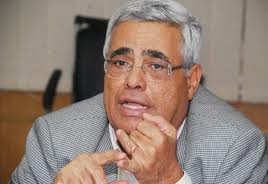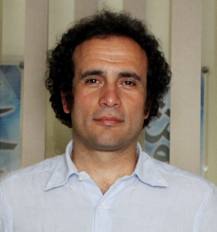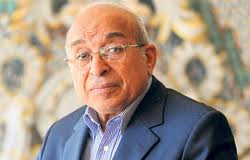As Egyptians await to see their newly-elected president undertaking his first presidential tasks and fulfilling his promises to keep watchful guard on the demands of 25 January revolution, columnists in several Egyptian newspapers continued to offer recommendations and advice for President-Elect Mohamed Morsi.
Writers in several newspapers questioned whether Egypt will see a civilian handover of power as outlined by the Supreme Council of Armed Forces (SCAF) for June 30.

Hassan Nafaa
Al-Masry Al-Youm
In his column, ‘ When will the army beturn to its barracks?’, Hassan Nafaa questioned when all of the military’s powers will be transferred from the ruling Supreme Council of Armed Forces (SCAF) to the newly-elected president Mohamed Morsi.
After most Egyptians seemed to accept the notion of its first Islamist president, Nafaa turned his critical eye onto questions revolving around the army’s role in filling the security void created by the withdrawal of police apparatus in the early days of the revolution, promises from the ruling military junta to transfer all powers within a maximum of six months.
The writer criticised the military’s continued political stranglehold on the country, which will, in his estimation, exceed the previously revised deadline of a civilian turnover of power schedule for June 30. Nafaa backs up his statements by citing the recent Supplementary Constitutional Declaration, which was unilaterally issued by the SCAF, in anticipation of a possible win by the Muslim Brotherhood candidate Morsi, only days before the official announcement of the presidential elections run-off.
He believes the Supplementary Constitutional Declaration effectively extended the political role of the military for an indefinite time period. This development was further compounded by the disbanding of the parliament, which completed the picture of a soft coup-d’état that is effectively paralysing the elected president and his governmental institutions.
Suggesting a reasonable resolution, Nafaa called upon immediate negotiations between Morsi and the presidential team he will form, and the military generals. Nafaa proposed an agenda of negotiations concentrating upon reaching a defined time period for the military handover of powers to a civilian-led government. The agenda, Nafaa wrote, should include an agreed list of the Constitutional Drafting Committee members, with a specific deadline for the committee to deliver a new constitution, along with a date to hold a public referendum on the new constitution.
Nevertheless, Nafaa urged all parties to give less focus on debating the legal status of the disbanded parliament, and to put all effort toward reestablishing the new parliament in particular, as well as other state institution. Saving the most important piece of the puzzle for last, Nafaa’s final demand was sending the army back to its barracks.

Amr Hamzawy
Al-Watan
In his column, ‘ The president’s challenges,’ Amr Hamzawy addressed the President-Elect Mohamed Morsi from his opposition seat, defining six main challenges the president has to tackle in his coming term.
First, Hamzawy said the president should lead by example, exerting his full powers and capacities, despite the SCAF issued Supplementary Constitutional Declaration limiting his decision-making ability. The second challenge facing the president, according to Hamzawy, is pushing for a complete transfer of power from the military institution to elected civilians. The transfer of power would mean a state of law, order, with a full respect of citizenship rights. In Hamzawy’s assessment this will be no easy task. The most difficult part of this mission is creating conditions for a return of civilian rule that is stable and does not draw the ire of the military, but rather, challenges it to return power to civilian inheritors.
Thirdly, the president has to preserve freedoms, whether in the political, social, economic, and cultural spheres to ensure the population its rights are not under attack. Such freedoms have been desperately awaited by the Egyptian people after decades of repression, Hamzawy wrote, and require close attention by Morsi, who has to take into account the controversial histories of political Islamism in the field of personal freedom. Morsi must demonstrate, Hamzawy hammered, he is the president of all Egyptians, and not only of those who supported him.
Hamzawy urged the president to consider that almost half of the Egyptians capable of voting did not vote for him, and called upon him to respect the presence and the demands of the new opposition. While the fifth challenge facing Morsi is to improve transparent governance.
The sixth and final challenge from Hamzawy’s perspective revolves around the management of the president’s relationship with the Muslim Brotherhood, the Freedom and Justice Party, and other currents identifying with political Islam. Hamzawy called upon Morsi at this critical stage in Egypt, to resign from his current role as the chairman of the Freedom and Justice Party, and to end all ties with the Muslim Brotherhood.
The author similarly called upon Morsi to preserve the neutrality of public institution, and to prevent government from being dominated by pro-Brotherhood camps. Finally, Hamzawy demanded Morsi to legalise the status of the undeclared Muslim Brotherhood and to put its activities, including its funding, under government audit.

Fahmi Howeidi
Shorouk News
Famhi Howeidi called upon Egyptians for a show of empathy for the President-Elect Mohamed Morsi.
He warned the public to lower its hopes for a president who, Howeidi said, is surrounded by invincible barriers which will undoubtedly limit his abilities to fulfill his electoral promises. Howeidi rejected notions that milestone achievements could happen under Morsi’s tenure.
Such ambitions are oblivious to the existence of a ‘president of the presidents’ represented by the military junta, and ‘deep state’ bureaucratic institutions, like the state media. Putting his finger on the problem, Howeidi defined the 17 June coup, otherwise known as the date of the Supplementary Constitutional Declaration, as the single most challenging event for the president, limiting his ability to perform his duties. Morsi will have to face the outcomes of not fulfilling his early promises.
The situation is so complex that the Supreme Council of Armed Forces (SCAF) now controls both the executive and legislative powers of the state, after disbanding the parliament, and the possibility of a similar dissolution facing the Shura Council. The generals are also hinting they may appoint a new cabinet, and are exerting their powers to perhaps cancel the reformation of the Constitutional Drafting Committee currently in operation, without the consent of the president.
Drafting the constitution will in of itself not be regarded as an easy matter, given the fact the SCAF possesses the power to veto any clause in a new constitution by virtue of their Constitutional Declaration. Finally, Howeidi criticised people who condemned Morsi for his strong ties and membership to the Muslim Brotherhood.
He disagreed with those who, despite of Morsi’s public statements announcing his resignation from the brotherhood, still believe he is bound by the vow to the Murshid, supreme guide of the group.

Amir Al-Imari
Al-Watan newspaper
In his column, ‘ How did I learn to love dictatorship?,’ Amir al-Imari playfully toyed with being an ardent citizen living in a theocratic dictatorship, taking on the tones and words of such notable theocratic leaders like Khomeini.
He stated after an initial love for democracy, he had decided to betray freedom and civil rights and choose dictatorship. While democracy results into chaos, dictatorship guarantees law and order.
Democracy is synonymous to pluralism and political parties, which constitutes the basic ingredient for social division and disintegration, whereas dictatorship means blind obedience to the great inspiring Emir, and knows no parties except two: the Party of God, and the Party of Satan.
Believing in the inspiring Emir means not to exert any more effort, as he thinks and takes decisions on our behalf, without leaving us to fall into a whirlpool of public debates. Freedom of expression opens the gates wide for a conflict of opinions, and emergence of atheist and agnostic intellectual currents. These currents can be effectively eliminated by dictatorship, especially when it is religious-based.
Nevertheless, while democracy allows the flourishing of modern arts ,which are undoubtedly products of the crusader infidel West, dictatorship is the only means to cut the limbs and tongues of those who stray from our path, and disobey the ruler, who is God’s shadow on Earth.
Al-Imari continued by explaining that democracy allows anyone to disagree with you, citing examples from ‘infidel European literature, which preaches destructive ideologies bread by Jews in their quest for world domination, such as modernism, post-modernism, secularism, brechtism, and descartism.’
In contrast, dictatorship enables the burning of such damaging literature, and even burying their authors alive, cutting off their hands and feet, and cursing them and their fathers and masters, all of whom are sons of apes and pigs. Dictatorship also permits the dismemberment of the ‘evil product’ of the ‘Jews so-called Universal Declaration of Human Rights, aiming to establish ‘soft states’.’ Al-Imari states cynically, ‘we do not want a soft state, but an iron fist, since obedience to us is the same as obedience to God.’
He ends his sardonic monologue by saying ‘democracy has got only one advantage, it can bring us to power. After that, no one will be able to drive us out.’


